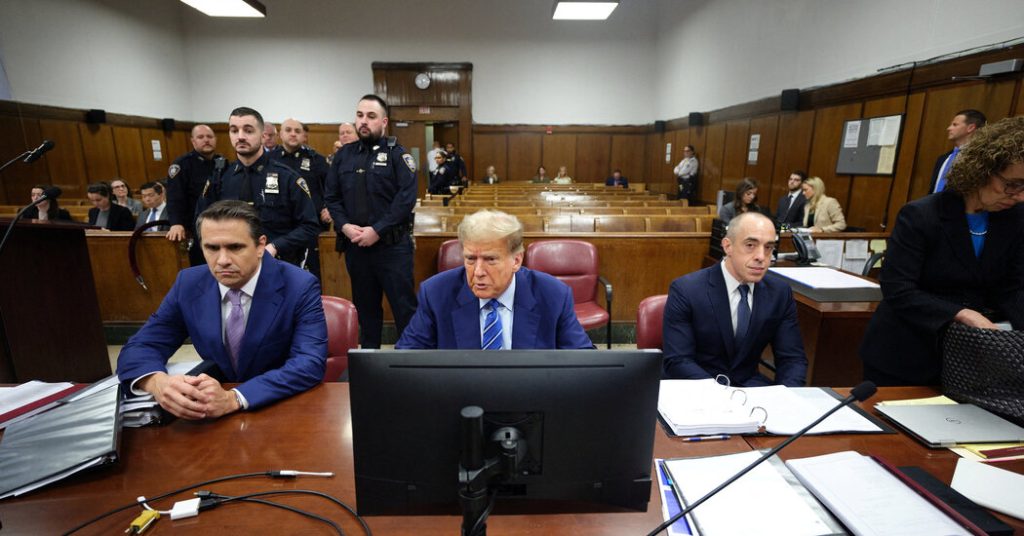The selection of jurors for the first criminal trial of former American president Donald J. Trump gained momentum as seven New Yorkers were picked to sit in judgment. The judge overseeing the case expected that opening arguments would begin on Monday if jurors continued to be seated at the current pace. The selection process involved questioning potential jurors about their views on politics, the former president, and their ability to remain impartial in what is considered to be a crucial phase of the case. Mr. Trump’s lawyers focused on examining the digital footprints of the potential jurors to ensure they could give him a fair trial.
The chosen jurors came from diverse backgrounds, including an oncology nurse, a grandfather originally from Puerto Rico, a middle-school teacher from Harlem, two lawyers, and a software engineer for Disney. While some jurors expressed respect for Mr. Trump, others presented red flags, leading to dismissal during the selection process. The importance and difficulty of picking a jury in a city where the defendant is deeply unpopular were underscored, with potential jurors reflecting New York City’s diverse and opinionated population.
Mr. Trump, who is facing 34 felony counts, has denied all allegations of wrongdoing. Prosecutors accused him of falsifying records to cover up hush money payments to a porn star during his 2016 presidential campaign. The trial could shape American political history, with the jury selection process playing a pivotal role in determining the outcome. While prosecutors may have an advantage in Manhattan, hope remains for Mr. Trump as even one stubborn juror could impact the case significantly.
The potential jurors were a diverse group, reflecting the demographics of New York City. Some struggled with the burden of history and the responsibility of serving on such a high-profile case, while others eagerly embraced their role as public servants. The jury selection process included moments of levity, with some potential jurors recounting personal stories and experiences with crime. Mr. Trump’s trial absorbed much of the courthouse’s energy, but other people were also summoned to serve on juries for different cases.
The process of selecting a jury continued with intense scrutiny of potential jurors’ past social media posts and political views. Mr. Trump’s lead lawyer sought the dismissal of several potential jurors based on their online activity, highlighting the challenges faced during jury selection. Despite some jurors expressing bias or unfavorable views towards the former president, others maintained a commitment to fairness and impartiality. The trial, which could potentially see Mr. Trump facing up to four years in prison, will be closely watched as it unfolds in one of the most Democratic counties in the nation.


